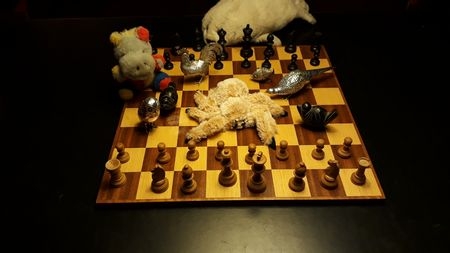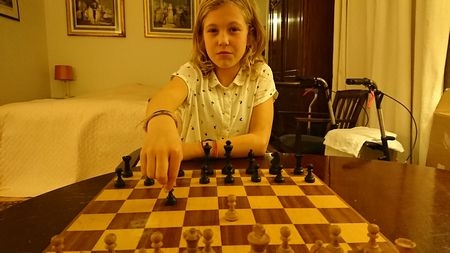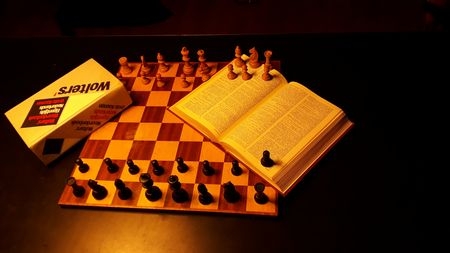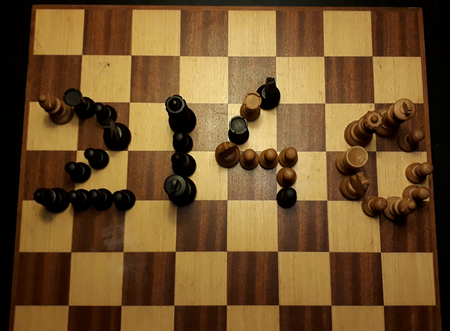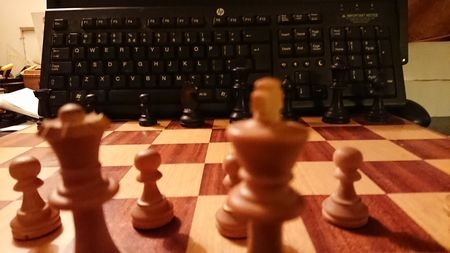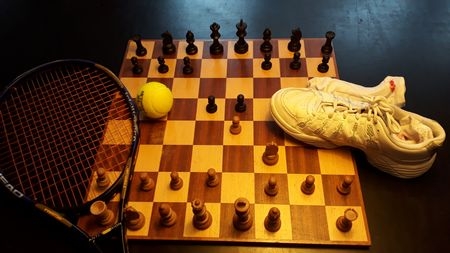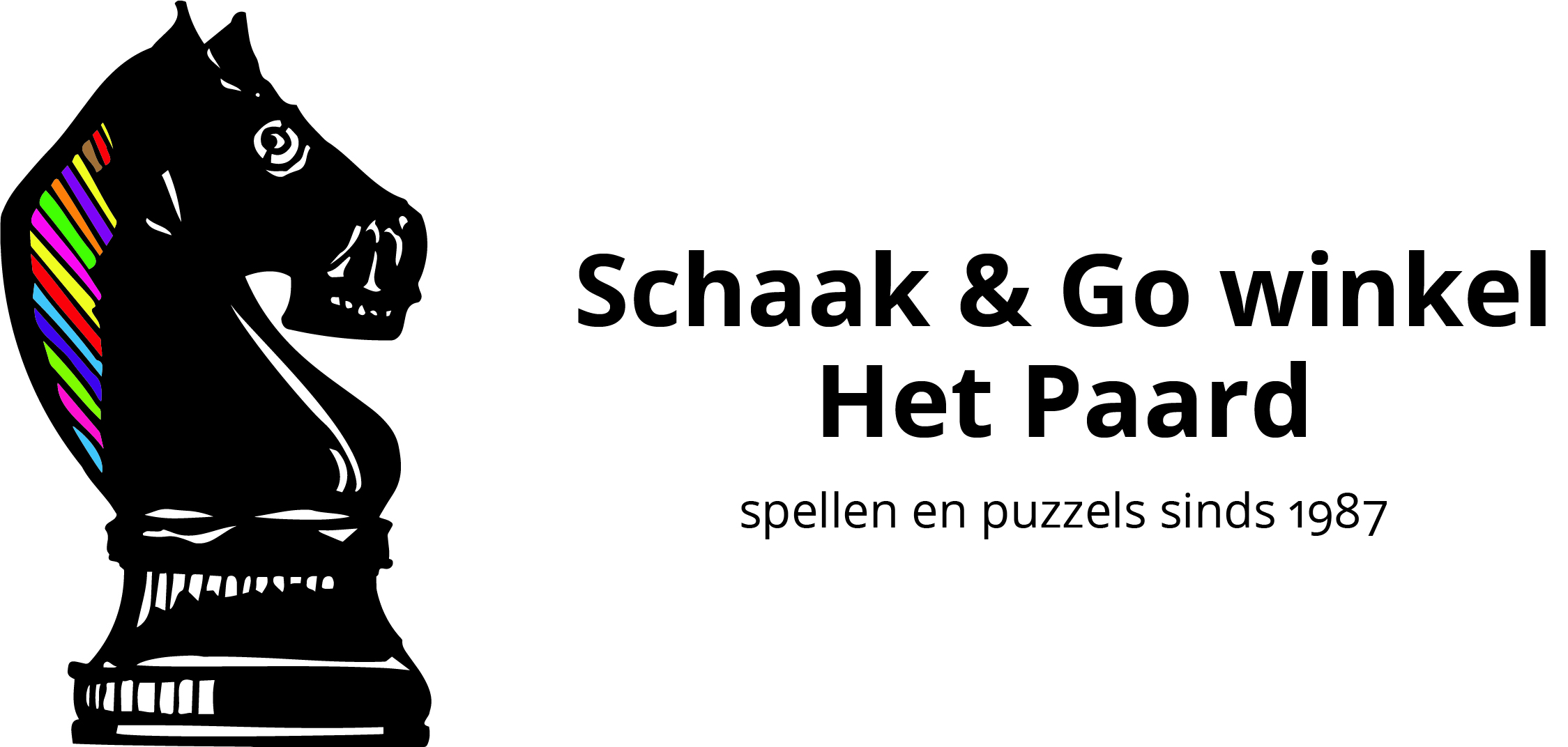Maurice Ashley is an American. Maurice loves chess, women, dancing, and himself. Maurice also loves commentating on chess. But foremost Maurice loves money. If a grandmaster makes a great move, he calls it the ‘money move’. If the game is decided, Maurice shouts: ‘That’s money, baby!‘.
Maurice Ashley is an American. Maurice loves dollars. On the internet there’s a clip in which Maurice delivers a speech at an elementary school in one of America’s worst neighbourhoods. Maurice’s message: Passion is nice, but it’s primarily about the money. More than half of his story is about making money and about if one really wants to reach something, then that’s really possible if one tries hard enough, like Maurice. He reached the top and became rich, and that’s nothing to be ashamed of..
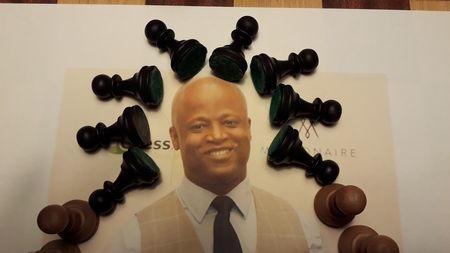
Maurice Ashley is an American. Maurice loves money. He was the main organiser of Millionaire Chess in Las Vegas. The winner of the last edition took home 30,000 dollars. Not bad, but less than the name of the tournament suggests. Millionaire Chess doesn’t exist anymore, because of a lack of funding. Maurice didn’t want to change the name into 763,345 dollar Chess. Success in the U.S. starts with a million, but also ends with a million.
Maurice Ashley is an American. Maurice came a long way, and is not afraid to mention that every once in a while. Born in Jamaica, he grew up in Brooklyn, New York. In Brooklyn the law of the street prevails, even on the chess board. During blitz games sometimes it could get rough, it was a battle of life and death, including foul play, and even fistfights. Because of his tough youth, Maurice became the man he is, a fighter. Because of his upbringing the achievements of Maurice are even more laudable. Maurice has never forgotten where he came from.
Maurice Ashley is an American. Maurice constantly shines and he wears expensive, tailor-made suits, so others can see how successful he is. He asked the tailor to leave some extra room for his bull neck. This neck is the result of regular bench pressing in the fitness lounge of his hotel. Maurice looks good, and he makes sure it stays that way.
Maurice Ashley is an American. Maurice gets paid for commentating on chess games during tournaments. His bank account is his best friend, but Stockfish is a good second. He knows that if it weren’t for Stockfish, he would be nowhere. But according to Maurice, it’s also the other way around. People say the two had a brief affair, but Maurice ended this romance when AlphaZero beat its colleague Stockfish. Only the best is good enough for Maurice.
Maurice Ashley is an American. Beside his computer, Maurice has a lot of other friends. Maurice has money and Maurice also loves other people who have money. Before interviews he introduces Caruana as ‘My dear friend Fabi,’. Then, usually the Italian/American leaves a painful silence and awkwardly looks the other way. Maurice doesn’t care. It’s all about the image of success. To Maurice it’s all about living the American Dream.
Maurice Ashley is an American. Maurice commentates on chess games if it were American football matches. Maurice doesn’t like draws. He has written an essay on a possible ban on draws. Sports are about winning and losing, and – according to Maurice – a little more about winning. If one wins in sports and life, one has a lot of friends, like Maurice.
Maurice Ashley is an American. He is a grandmaster, but not a very good one. When he recognised that, he decided to make the full potential out of his career and shifted his focus towards commentating. Maurice commentates on chess as if his life depends on it. He is a grandmaster and he tells us – simple mortals – how the game should be played. He does this with the help of the computer, because of the entertainment factor. He could, of course, easily do it without the assistance of his computer friend. Of course.
Simon Williams is a Brit. Simon drinks a lot and loses a lot. Simon is also a chess commentator and Simon is also one of the worst grandmasters around. Nevertheless, Simon is the opposite of Maurice. While Maurice shows the world how loaded he is, Simon is struggling, and shows everybody how tough life as a chess professional is. Simon shows us how one can prostitute oneself on YouTube to buy some cheap cans of beer to make it through another day. But this column is not about Simon Williams.
Maurice Ashley is an American. A real American. Sometimes he clashes with Europeans, like that one time Carlsen struggled his way through a blitz game and Maurice called it a ‘not-so-smooth win’. Maybe an innocent remark in the heat of the moment, but Carlsen didn’t like it. Carlsen doesn’t like to be judged by a grandmaster with 400 Elo points less than him who is guided by a computer with 400 Elo points more than him.
Maurice Ashley is an American. Maurice is self-confident and knows what he can and cannot do, although the latter is not often the case. Maurice doesn’t panic easily. Only when he interviews Carlsen. He hopes Carlsen won’t get mad with him again. To please Carlsen during the introduction he calls him ‘world champion’ and ‘great champion’ maybe a little bit too often. Maurice shows that even great personalities like himself can praise other great personalities.
Maurice Ashley is an American. Carlsen is a Norwegian. Both are winners, but in different ways. Carlsen keeps himself sharp by being critical of himself all the time and is never satisfied. Maurice is satisfied with himself most of the time. Moreover, Maurice Ashley has no reason to be unsatisfied with Maurice Ashley.
Maurice Ashley is an American. His poster hangs on my bedroom wall. I have something to confess: I love Maurice. I think I even feel a little bit attracted to him. But he doesn’t know. Yet. All those top grandmasters who tell us the same story over and over again after their games. Take Maurice. Maurice does everything he does with passion. Maurice is a pure professional and that’s exactly what the game of chess needs. Maurice is totally himself. And Maurice Ashley is an American.
Benno de Jongh
Benno de Jongh writes daily columns during the Chess Festival, published around 3 pm on playing days. De Jongh is a journalist and a chess player, who has never reached the rating of 2000, and probably never will. Despite that fact he is one of the worlds leading experts on the Elephant Gambit and working on a book on the subject, (working title: The Elephant Gambit, A Rare Black Beast with a Proboscis on the Board, publication expected in 2032). De Jongh’s opinions on several chess- and non-chess-related items do not in any way reflect the policy of the organisation of the festival.


